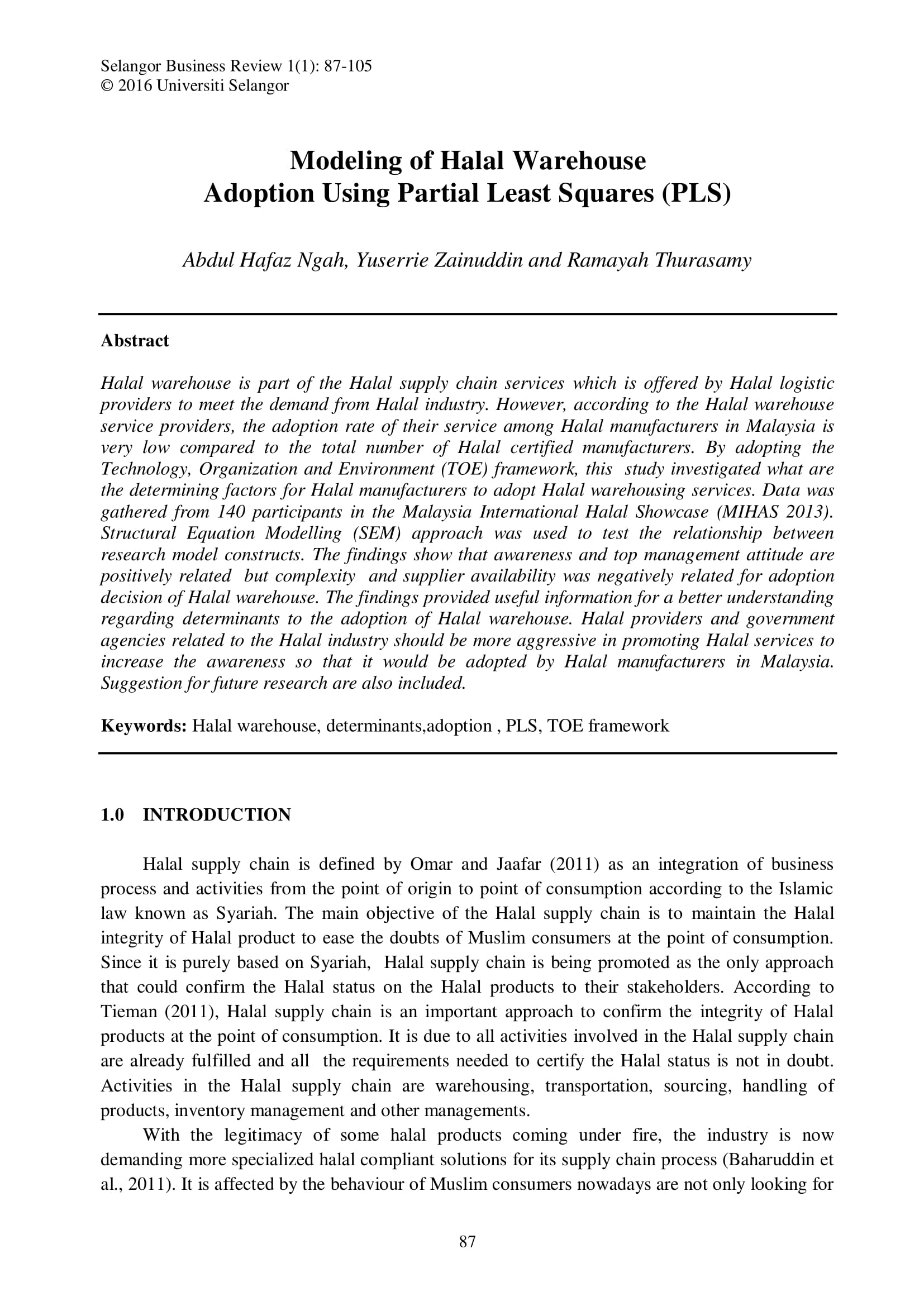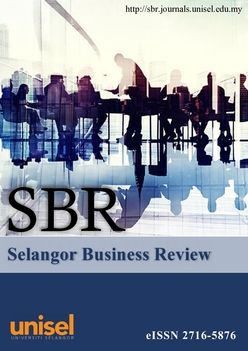Modelling of Halal Warehouse Adoption Using Partial Least Squares (PLS)
Keywords:
Halal warehouse; determinants; adoption; PLS; TOE framework
Abstract
Halal warehouse is part of the Halal supply chain services which is offered by Halal logistic providers to meet the demand from Halal industry. However, according to the Halal warehouse service providers, the adoption rate of their service among Halal manufacturers in Malaysia is very low compared to the total number of Halal certified manufacturers. By adopting the Technology, Organization and Environment (TOE) framework, this study investigated what are the determining factors for Halal manufacturers to adopt Halal warehousing services. Data was gathered from 140 participants in the Malaysia International Halal Showcase (MIHAS 2013). Structural Equation Modelling (SEM) approach was used to test the relationship between research model constructs. The findings show that awareness and top management attitude are positively related but complexity and supplier availability was negatively related for adoption decision of Halal warehouse. The findings provided useful information for a better understanding regarding determinants to the adoption of Halal warehouse. Halal providers and government agencies related to the Halal industry should be more aggressive in promoting Halal services to increase the awareness so that it would be adopted by Halal manufacturers in Malaysia. Suggestions for future research are also included.
Published
2017-01-02
How to Cite
Ngah, A. H., Zainuddin, Y., & Thurasamy, R. (2017). Modelling of Halal Warehouse Adoption Using Partial Least Squares (PLS). Selangor Business Review, 1(1), 87-105. Retrieved from https://sbr.journals.unisel.edu.my/ojs/index.php/sbr/article/view/34
Issue
Section
Articles





 3,026
3,026 2,412
2,412 1,466
1,466